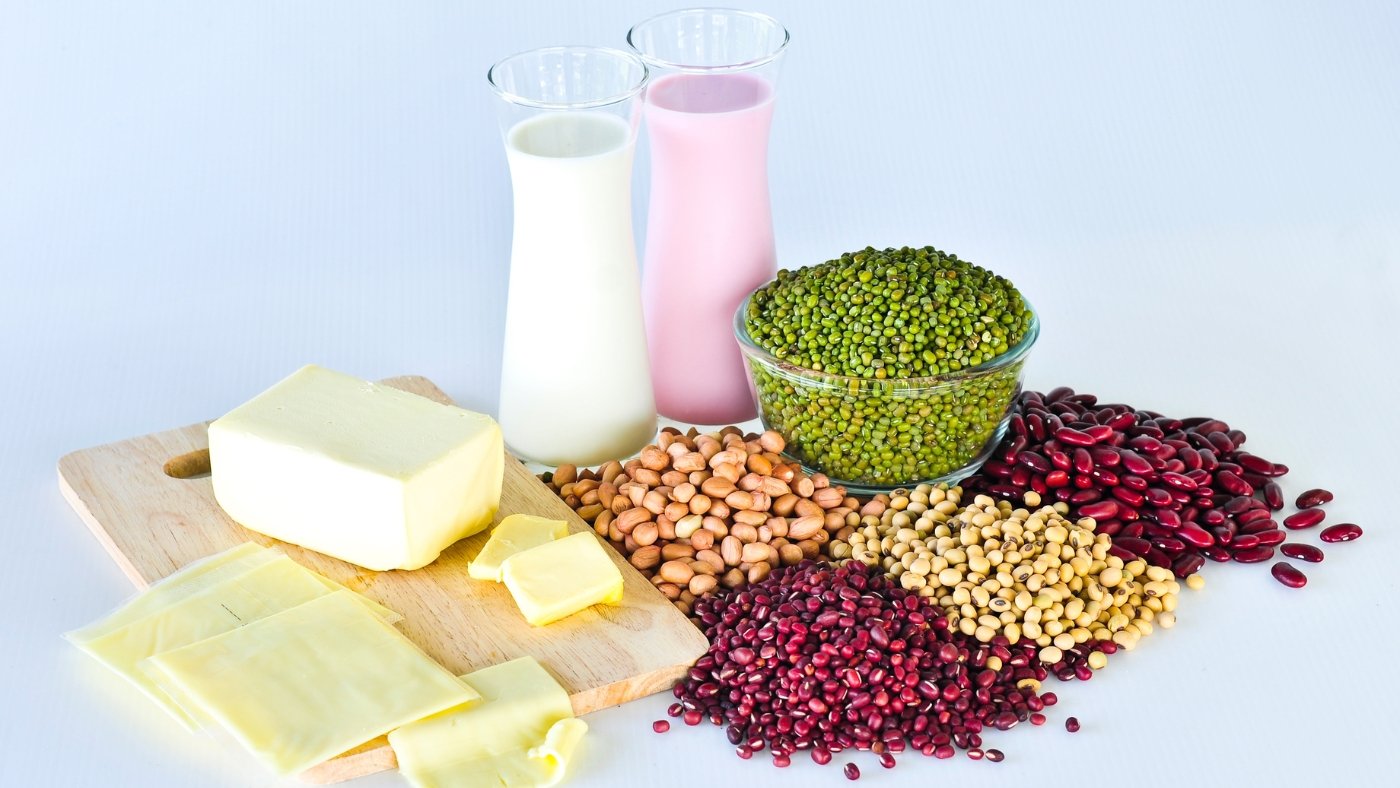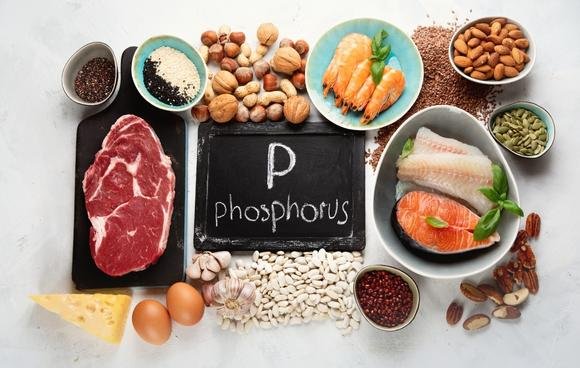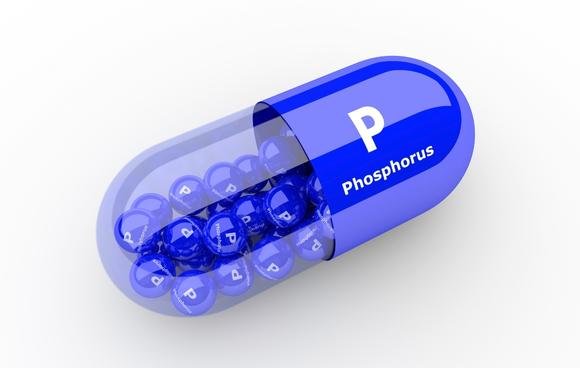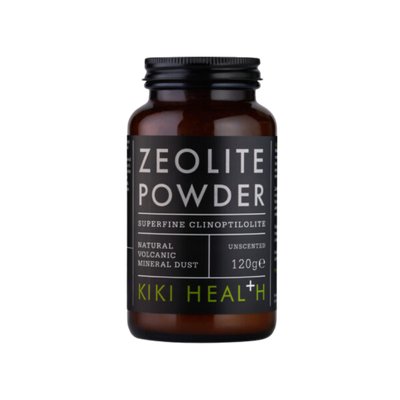Kaip Sustiprinti Širdį: Kardiologų Patikrinti Metodai Be Vaistų
Kasmet pasaulyje nuo širdies ir kraujagyslių ligų miršta apie 17 milijonų žmonių, ir šios ligos išlieka pagrindinė lietuvių mirties priežastis. Tačiau gera žinia ta, kad…

A ubiquitous mineral in nature and the second most abundant mineral in the human body, phosphorus accounts for ~1% of total body weight. But how and from whom can we absorb this mineral?
Do you know that phosphorus has not only health benefits but also disadvantages. Phosphorus must be used responsibly so as not to harm your health.

You may have heard the words "phosphorus" and "phosphate". But you may be wondering what these terms mean and what they have to do with your diet.
Phosphorus is a mineral that occurs naturally in many foods and is also available as an additive. It performs many functions in the body. It is the main element of bones, teeth and cell membranes. Helps activate enzymes and maintains a normal blood pH level.
It plays an important role in the health of every cell in the body, including our:
Phosphates are a form of phosphorus. Most phosphates are widely used in household and industrial chemistry, fertilizer production. You can find phosphates in:
Phosphate is also a medicinal form of phosphorus, and you can take it as a dietary supplement if you can't get enough phosphorus naturally. Certain diseases can prevent you from getting enough phosphorus.
Phosphate is an electrically charged particle that contains the mineral phosphorus. Phosphorus, together with the mineral calcium, forms strong bones and teeth.
Phosphorus works with calcium to help strengthen bones. Bone health requires proper calcium and phosphorus content.
Phosphorus is a mineral that makes up 1% of the total human body weight. It is the second most abundant mineral in the body. It is present in every cell of the body. Most of the phosphorus in the body is found in bones and teeth.
The body absorbs less phosphorus when calcium levels are too high, and vice versa. For proper absorption of phosphorus, you also need optimal vitamin D quantity.
Phosphorus deficiency is called hypophosphatemia. Hypophosphatemia occurs when the amount of phosphorus in the blood becomes too low (about 2.7 mg). This lowers your energy levels. It can also cause:
Inadequate levels of phosphorus, low levels of calcium and vitamin D can lead to weaker, softer bones over the long term. This causes joint and muscle pain.
The amount of phosphorus in your body is tightly controlled. Kidneys, bones and intestines strictly regulate the amount of phosphorus in the body. A low level can be a sign of a disorder.
A high level of phosphorus in the blood is called hyperphosphatemia. Some of the symptoms of these conditions overlap with low phosphorus events. These symptoms include:
People with high levels of phosphorus may also experience itching and red eyes. Symptoms of high phosphorus cases can be severe:
Your doctor can help determine the cause of high or low phosphorus in your body and the best way to treat it.
If you have a phosphorus deficiency, you may experience a number of bone-related symptoms. For example, you may have bone pain or brittle bones that break more easily. Loss of appetite is another symptom that can make it difficult to increase phosphorus levels through a healthy diet.
Other symptoms include:
In addition, children who do not have enough phosphorus in their bodies may have poor growth or problems with bone and tooth development.
We get phosphorus through the food we eat. If we don't have adequate nutrition or have conditions that affect our ability to use this mineral, we can develop a phosphorus deficiency (hypophosphatemia).
Phosphorus deficiency is rare. Even when people don't get enough of this mineral in their diet, the body can compensate by reabsorbing what's already in the blood. In addition, severe cases of starvation can cause hypophosphatemia.
If you are deficient in other vitamins such as vitamin D, the way they work together can make it harder for you to absorb phosphorus and other minerals like calcium.
Diabetes can also cause deficiency, especially in people recovering from an episode of diabetic ketoacidosis. This means that the body does not produce enough insulin and cannot break down fat. As a result, acids build up in the blood, which can lead to phosphorus deficiency.
Alcoholism can also lead to poor nutrition. As a result, people with alcoholism can develop nutritional deficiencies, including hypophosphatemia. Deficiency may be especially likely in people who are diagnosed with alcohol abuse.
Individuals who are being treated for eating disorders such as anorexia may be treated with nutrition. If these procedures contain a lot of calories, but too little phosphorus, a deficiency may occur.
There are also certain genetic disorders that affect the body's ability to store phosphorus. These disorders often occur because too much phosphorus is excreted in the urine or because the mineral is not absorbed from food.
Hyperphosphatemia usually has no immediate symptoms. However, hyperphosphatemia can remove calcium from your bones and blood, which can lead to hypocalcemia.
Symptoms of hypocalcemia include:
Most people get about 800 to 1,200 milligrams (mg) of phosphorus each day from foods such as red meat, dairy products, chicken, fish, and fortified grains. In the body, phosphate is found in bones and teeth, inside cells, and in much smaller amounts in the blood.
Your kidneys help remove extra phosphorus from your body to maintain balance. When your kidneys are damaged, your body can't remove phosphorus from the blood fast enough. This can lead to chronically elevated phosphorus levels.
Other possible causes of hyperphosphatemia include:
Recommended daily doses are:
| Year | Quantity per day |
| 0 to 12 months | 275 mg |
| 1 to 3 years | 460 mg |
| 4 years and older | 1,250 mg |
| Pregnant or nursing mothers | 1,250 mg |
Doctors may prescribe phosphate binders to balance phosphorus levels. They are taken with meals and snacks and limit the amount of phosphorus that the body can absorb.
Lifestyle choices can help balance high phosphorus levels. You can try:
This can help you get the right amount of phosphorus for your body.

Finding foods rich in phosphorus is not difficult. Examples:
Good sources of phosphorus include:
Whole grains, egg yolks are also high in phosphorus. Although phosphorus is naturally present in many foods, processed foods can contain many phosphorus additives that help the body.
Almost all fresh fruits and vegetables are low in phosphorus. These foods are also an important part of your daily diet. Other foods that are very low in phosphorus include:
These foods can help your body maintain normal levels of phosphorus in the body simply because they contain small amounts of phosphorus.
Your kidneys help remove excess phosphorus from your blood, keeping it in balance. Phosphorus levels can be too high if the kidneys are not working as expected. It can also cause an increase in calcium levels.
Dangerous calcium deposits can form in your:
People with kidney disease may need dialysis (kidney replacement therapy, which is used when the kidneys are no longer able to rid the body of waste products) to allow their kidneys to clear excess phosphorus.

Phosphorus drugs can be used in a variety of ways. They have been proven to:
Phosphorus supplements can also help rebuild bones and reduce excess calcium in the body due to an overactive parathyroid gland (a small endocrine gland located in the neck in humans and vertebrates (except fish).
Phosphorus is an integral part of healthy bones and a healthy body. Sometimes medical conditions, such as kidney disease, can affect the amount of phosphorus in your body.
Consult your health care professional if you experience any symptoms of high or low phosphorus levels.
Kasmet pasaulyje nuo širdies ir kraujagyslių ligų miršta apie 17 milijonų žmonių, ir šios ligos išlieka pagrindinė lietuvių mirties priežastis. Tačiau gera žinia ta, kad…

Artificial intelligence in medicine has made impressive progress – it has already successfully passed medical licensing exams and can handle internal medicine cases. Even more impressive is that special…
The human heart beats an average of more than 2.5 billion times during a lifetime. This amazing organ works tirelessly to maintain a vital pulse rhythm, the rate of which (pulse rate)…

KIKI Health Zeolitas - Ceolitas, milteliai, 60 g

Trace Minerals Mega Magnesium 400 mg. Liquid with minerals, 118 ml.

KIKI Health Zeolitas - Ceolitas su aktyvuota anglimi, milteliai 60 g.

KIKI Health Zeolitas - Ceolitas, milteliai, 120 g.

SUPER OMEGA-3 - norvegiški žuvų taukai su Omega-3, didelė koncentracija, 100+30 kapsulių
| Cookie | Duration | Description |
|---|---|---|
| cookielawinfo-checkbox-advertisement | 1 year | Šį slapuką nustato GDPR Cookie Consent papildinys. Slapukas naudojamas išsaugoti vartotojo sutikimą dėl slapukų kategorijoje „Analitiniai“. |
| cookielawinfo-checkbox-analytics | 11 mėnesių | Šį slapuką nustato GDPR Cookie Consent papildinys. Slapukas naudojamas išsaugoti vartotojo sutikimą dėl slapukų kategorijoje „Analitiniai“. |
| cookielawinfo-checkbox-functional | 11 mėnesių | Slapukas nustatomas pagal GDPR slapukų sutikimą, kad būtų įrašytas vartotojo sutikimas dėl slapukų kategorijoje „Funkciniai“. |
| cookielawinfo-checkbox-necessary | 11 mėnesių | Šį slapuką nustato GDPR Cookie Consent papildinys. Slapukai naudojami saugoti vartotojo sutikimą dėl slapukų kategorijoje „Būtini“. |
| cookielawinfo-checkbox-others | 11 mėnesių | Šį slapuką nustato GDPR Cookie Consent papildinys. Slapukai naudojami saugoti vartotojo sutikimą dėl slapukų kategorijoje „Kiti“. |
| cookielawinfo-checkbox-performance | 11 mėnesių | Šį slapuką nustato GDPR Cookie Consent papildinys. Slapukai naudojami saugoti vartotojo sutikimą dėl slapukų kategorijoje „Vykdymas“. |
| elementor | never | Šį slapuką naudoja svetainės „WordPress“ tema. Tai leidžia svetainės savininkui realiuoju laiku įdiegti arba keisti svetainės turinį. |
| viewed_cookie_policy | 11 mėnesių | Slapuką nustato GDPR Cookie Consent įskiepis ir jis naudojamas norint išsaugoti, ar vartotojas sutiko, kad būtų naudojami slapukai, ar ne. Jame nesaugomi jokie asmens duomenys. |
| Cookie | Duration | Description |
|---|---|---|
| _ga | 2 metai | _ga slapukas, įdiegtas Google Analytics, apskaičiuoja lankytojų, seansų ir kampanijos duomenis, taip pat seka svetainės naudojimą svetainės analizės ataskaitoje. Slapukas išsaugo informaciją anonimiškai ir priskiria atsitiktinai sugeneruotą skaičių unikaliems lankytojams atpažinti. |
| _ga_JWS80V051Z | 2 metai | Šį slapuką įdiegė Google Analytics. |
| omnisendSessionID | 30 minučių | Šį slapuką nustato teikėjas Omnisend. Šis slapukas naudojamas unikaliam seanso ID nustatyti. Slapukas statistiniais tikslais renka informaciją apie lankytojų elgesį svetainėje. |
| soundestID | sesijos metu | Šį slapuką nustato teikėjas Omnisend. Šis slapukas naudojamas norint nustatyti, ar lankytojas svetainėje yra naujas, ar lankytojas lankėsi anksčiau. |
| Cookie | Duration | Description |
|---|---|---|
| omnisendAnonymousID | 1 year | Šį slapuką nustato teikėjas Omnisend. Šis slapukas naudojamas išsaugoti vartotojo veiksmą svetainėje su unikaliu ID. Slapukas užšifruoja lankytojo duomenis, kad būtų apsaugoti naudotojo duomenys. |
| soundest-views | sesijos metu | Aprašymas negalimas. |
| woocommerce_recently_viewed | sesijos metu | Aprašymas nepasiekiamas. |
